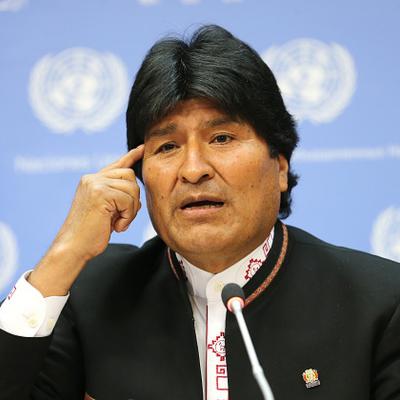Evo Morales at a Glance
- Categories: Politicians, Politicians > Presidents
- Net Worth: $500 Thousand
- Birthdate: Oct 26, 1959 (64 years old)
- Birthplace: Orinoca Canton
- Gender: Male
- Profession: Trade unionist, Farmer, Politician
- Nationality: Bolivia
Evo Morales’ Net Worth: A Look at the Life and Finances of Bolivia’s Former President
Introduction
Evo Morales, a name synonymous with Bolivian politics, indigenous rights, and leftist ideologies, served as the 80th President of Bolivia from 2006 to 2019. Beyond his political career, Morales has also garnered attention for his involvement in activism and even professional football. This article delves into the life, career, and financial standing of Evo Morales, providing a comprehensive overview of his journey from coca farmer to the highest office in the country.
Early Life and Political Beginnings
Born in Orinoca, Bolivia, in October 1959, Evo Morales began his journey in a humble setting. Before entering the political arena, Morales worked as a coca farmer and trade unionist. This experience shaped his views on socioeconomic issues and fueled his passion for advocating for the rights of indigenous populations and farmers. His early years were marked by activism, particularly his campaigns against the eradication of coca, a plant central to Bolivian culture and economy.
Morales’ activism led to numerous arrests due to his participation in protests against both Bolivian and U.S. policies related to the War on Drugs. His strong stance against coca eradication and his vocal opposition to the policies of the United States government resonated with many Bolivians, particularly within the indigenous communities.
Rise to Power
Morales’ political career gained momentum in the 1990s. He became the leader of the Movement for Socialism (MAS) in 1995, a party that would become the vehicle for his presidential ambitions. His popularity soared during the Cochabamba protests and the Gas Conflict, significant events that highlighted the country’s struggles with economic inequality and resource management.
He first ran for the presidency in 2002, where he came in second. This defeat did not deter him; it only strengthened his resolve. His persistent efforts and growing support base ultimately led to his victory in the 2005 presidential election. He secured a decisive win, marking a turning point in Bolivian politics and signaling the rise of indigenous representation at the highest level.
Presidency: Achievements and Challenges
Evo Morales’ presidency was marked by significant policy shifts and initiatives. Key achievements included:
- Reducing Poverty: Morales implemented various programs aimed at alleviating poverty and improving the living standards of marginalized communities.
- Nationalization of Resources: He nationalized key industries, including natural gas, to ensure that Bolivia benefited more from its own resources.
- Constitutional Reform: In 2008, a new constitution was instituted, reflecting the values and rights of indigenous populations and promoting social justice.
- Foreign Relations: Morales scaled back U.S. involvement in Bolivia and fostered stronger relationships with other Latin American nations, aligning the country with a broader regional bloc.
Despite these achievements, his presidency also faced several challenges. The policies of Morales were not without controversy, and he faced criticism regarding issues of corruption and democratic principles towards the end of his tenure. In 2019, after a disputed election, Morales resigned from his position amid widespread protests and allegations of electoral fraud. He sought asylum in Mexico before later moving to Argentina.
Post-Presidency and Net Worth
Following his resignation, Evo Morales’ net worth has been a subject of interest. It is reported that Morales has a net worth of approximately $500,000. The sources for this information include Celebrity Net Worth and others that track the wealth of public figures. This estimate reflects his income from his political career, including his presidential salary, and any other investments or assets he might possess.
Morales as a Footballer
In an unexpected turn, Morales has also had a stint as a professional footballer. After leaving the presidency, he signed with a Bolivian soccer team and played as an active professional. He holds the distinction of being one of the oldest active professional players in the world, earning a modest salary of $200 per month. This dual role as a politician and athlete showcases his diverse interests and his commitment to maintaining an active lifestyle.
Legacy and Impact
Evo Morales left a significant mark on Bolivian politics and society. He is widely regarded as the first democratically elected president from the indigenous population, and his presidency saw a shift in power dynamics and a focus on the rights and interests of the marginalized. Morales’ policies, though often debated, have undoubtedly had a lasting impact on Bolivia’s social, economic, and political landscape.
Conclusion
Evo Morales’ life journey, from coca farmer to president, embodies a remarkable story of political ascent and transformation. His legacy is complex, marked by both remarkable achievements and considerable controversies. His impact on Bolivian politics and his influence on regional dynamics continue to be felt, even after his departure from the presidential office. Understanding Morales’ net worth provides only a small part of a wider picture of his impact on Bolivia’s political arena.
/**/

